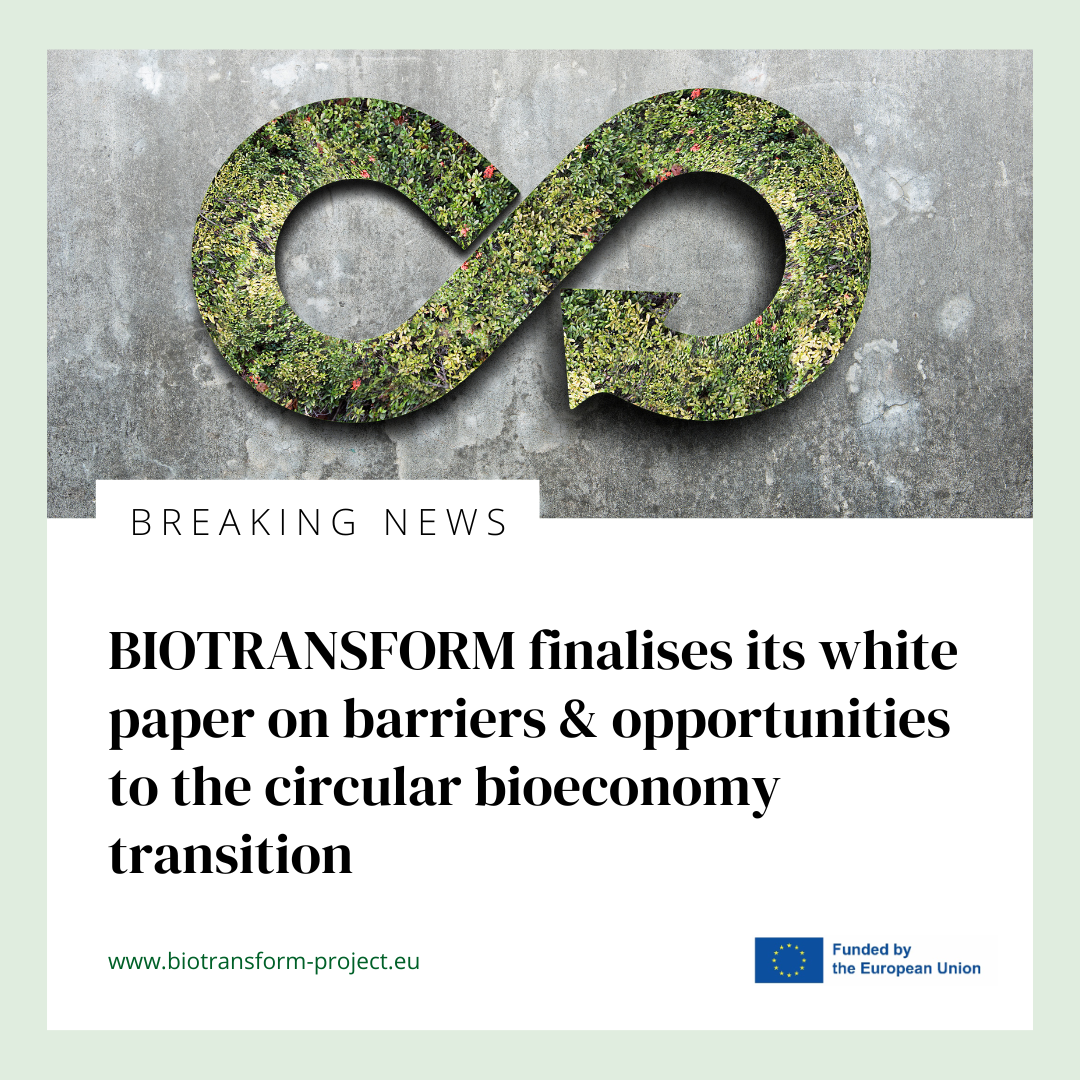The end of 2023 was marked by the finalization of an important deliverable for the BIOTRANSFORM project: a background paper targeting policy makers to inform them on the opportunities and barriers when transitioning to circular bioeconomy. Drafted by ACR+, WP4 (Governing the transition) leader, with the contribution of all case-study partners, the paper outlines the key hurdles to the shift, discussing environmental, socioeconomic, financial, policy and governance barriers. Only by being aware of these barriers, their interlinkages, and feedback effects within the socioeconomic and environmental systems, policy makers can deliver well-integrated and tailor-made proposals to address them.
The key takeaways and reflections made during the first phase of the project are also presented in our paper.
Some important points raised are the following:
- bioeconomy is not circular nor environmentally sustainable by essence. For this to be the case, many aspects are to be considered. For example, biobased products should be designed and produced following circularity principles (e.g. extended lifetime, possibility to be re-used, repaired, and ultimately only if there is no other feasible option recycled or composted).
- the right balance should be found between land used to produce bioeconomy feedstock and for other important purposes (such as food production).
- circular biobased systems and the positive impacts they deliver cannot be replicated to all regional contexts and territorial scales, given the diversity of environmental, economic, and social characteristics. Therefore, customization is critical to maximizing the benefits of biobased and biodegradable products.
Mindful of all the challenges, opportunities and trade-offs outlined in our paper, the BIOTRANSFORM project will continue its work towards the definition of feasible circular bioeconomy pathways in its’ case-study regions, ensuring the developed tools are well adapted to each context.
This white paper is a first important step creating technical guidelines to help regional authorities address governance and financing barriers to the transition within their strategy, and it paves the way for the project’s final policy recommendations to lift the identified barriers.




